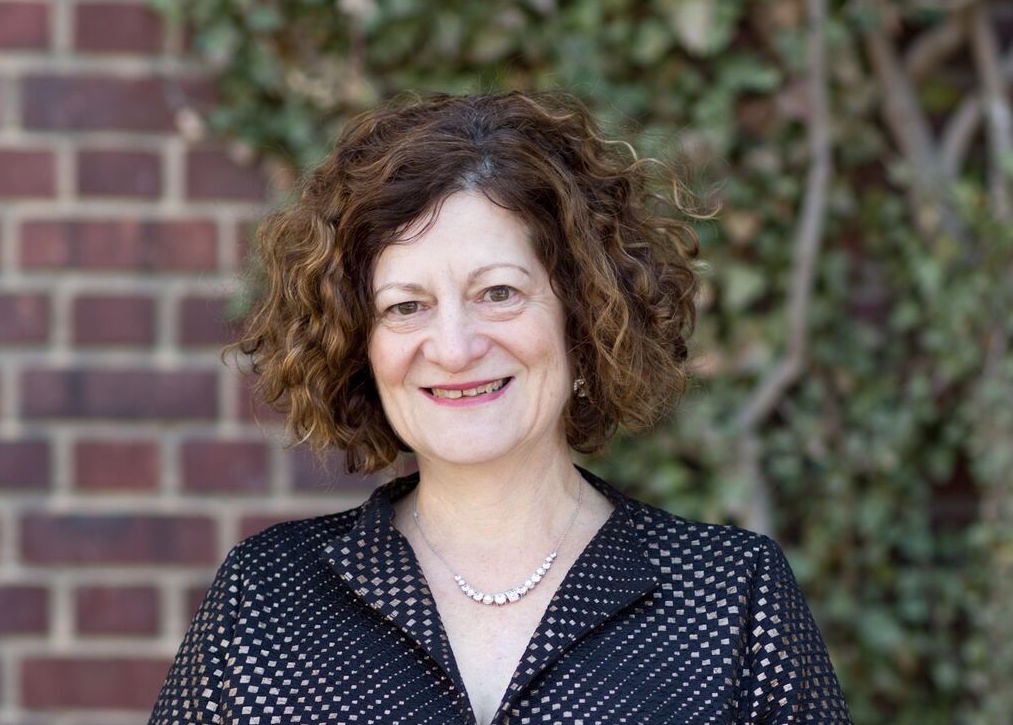
Recognized as one of the leading scholars in baroque music, Wendy Heller ’78, ’86 M.M. has published widely on 17th- and 18th-century opera from interdisciplinary perspectives, with special emphasis on gender and sexuality, art history, Italian literature, dance history, and the classical tradition. Author of the award-winning Emblems of Eloquence: Opera and Women’s Voices in Seventeenth-Century Venice (Berkeley, 2003), Heller’s recent publications include Music in the Baroque and its companion volume Anthology of Music in the Baroque (W. W. Norton, 2013), an essay on Bach’s Magnificat BWV 243, and the volume Staging History: Historical Drama in Britain and America, 1780–1860, co-edited with Michael Burden, Jonathan Hicks, and Ellen Lockhart.
Having trained as a singer at New England Conservatory before receiving her PhD in musicology from Brandeis University, Heller maintains a strong interest in performance, promoting collaborations between scholars and performer. She has been a driving force in the baroque operas at Princeton, and served as dramaturg for Princeton University Opera Theater’s 2014 production of Monteverdi’s L’incoronazione di Poppea. Heller has earned numerous fellowships and prizes from such organizations as the ACLS, the Mellon Foundation, and the Gladys Krieble Delmas Foundation. Winner of the Rome Prize, Heller has also been a been a Mellon Fellow at the Society of Fellows at Columbia University, an appointee at the Villa I Tatti Harvard University Center for Renaissance Studies, and spent 2010-2011 as the Sylvan C. and Pamela Coleman Fellow at the Metropolitan Museum of Art.
A former member of the Board of the American Musicological Society, Heller is currently vice-president of the Society for Seventeenth-Century Music, a member of the Board of Directors of the American Handel Society, the Venetian Advisory Board for the Gladys Krieble Delmas Foundation, and serves on numerous editorial board, including the Journal of Musicology and Cambridge Opera Journal.
What project(s) are you working on now? My current book project is entitled “Animating Ovid: Opera and the Metamorphoses of Antiquity in Early Modern Italy,” and it deals with the relationship between seventeenth-century Italian opera and one of the seminal works of western literature, Ovid’s Metamorphoses and the art work inspired by Ovid that also influenced opera. I am involved in two opera editing projects: Francesco Cavalli’s Veremonda L’Amazzone di Aragona (1652) and Handel’s Admeto (1727).
How did NEC influence the way you think about music? My time at NEC profoundly influenced the ways that I think about music. All of my scholarship is informed by my experience as a performer, and there’s no question that I’m a better musician on account of my years at NEC. I owe a great deal to my time in NEC Chorus with the incomparable Lorna Cooke de Varon. I love singing and perform whenever I have the opportunity (I did a full recital at Princeton a few years ago); as a scholar one is always performing: in the classroom, in public lectures, in conferences, even at meetings, and and this is all much easier when performing is second nature. My NEC background has also been invaluable in my role as mentor to the many Princeton students who have gone on to successful performing careers.
After earning your BM in vocal performance, you returned to NEC a few years later for an MM in Musicology. What motivated you to pursue a career in Musicology, and what advice would you give young music scholars interested in a similar path? My decision to pursue a degree in Musicology at NEC was a result of a number factors. In the years immediately following my graduation I worked in the Firestone Library, took voice lessons, did opera workshops and church jobs, and took advantage of the tuition benefit to take courses. It was Anne Hallmark, who had such a distinguished career at NEC, who encouraged me to enter the MM program in Musicology, and owe a great deal to her and to the rest of the Department in those years (Julia Sutton and Greg Smith in particular). While I loved singing, I found that I also enjoyed writing and research, and that perhaps I was better suited to share my passion for music through this different medium. It meant putting singing on the back burner. However, singing still paid many of the bills: I supplemented my Brandeis fellowship with a position as a Cantorial Soloist at Congregation Klal Yisrael in Stoughton, MA, and continued in that position until I came to Princeton.
I believe that the best music scholarship is informed by a knowledge of a performance, and the best performers are those who are interested in asking questions about the music they play and sing. As a profession, Musicology is not an easier path than performance, it’s a different one, and in fact the academic job market in the Humanities remains challenging. I would advise young scholars to learn lots of repertory, develop their musicianship skills, but not to forget about other disciplines that help us better understand music’s past and present. Young scholars should be reading broadly, going to museums (the MFA is right down the street), learning languages, and getting critical feedback on their writing. It can be a long road, but my colleagues in other fields envy the fact that going to the opera is part of my work (and tax deductible!)
What are your top three “desert island” pieces? The desert island questions always tough. Number one is certainly Monteverdi, probably L’incoronazione di Poppea, but the Madrigali guerrieri et amorosi (Book 8 madrigals) and the Vespers are also in the competition. The second choice is certainly Mozart, Le nozze di Figaro. After that it gets very tough; for the sake of variety I might take Teresa Stratas’ “Unknown Kurt Weill” album—or Lotte Lenya’s double album of Kurt Weil songs.
